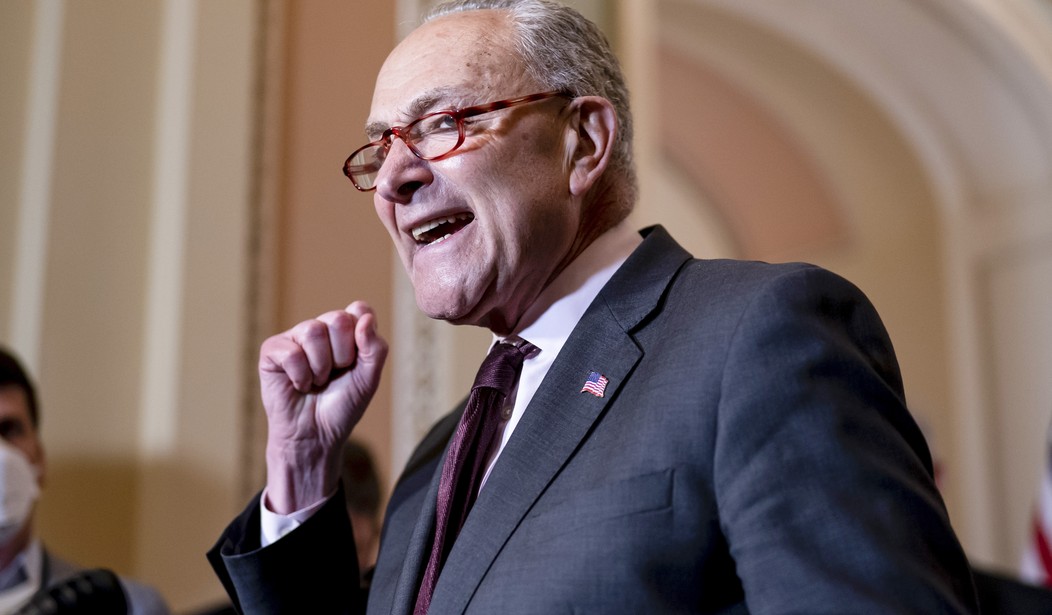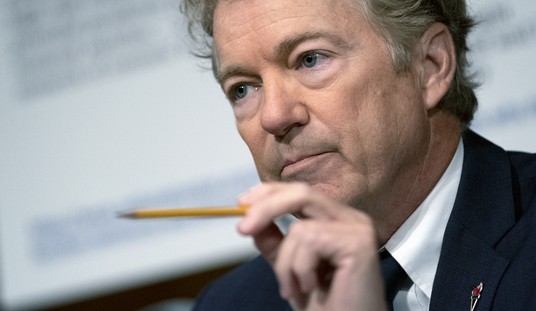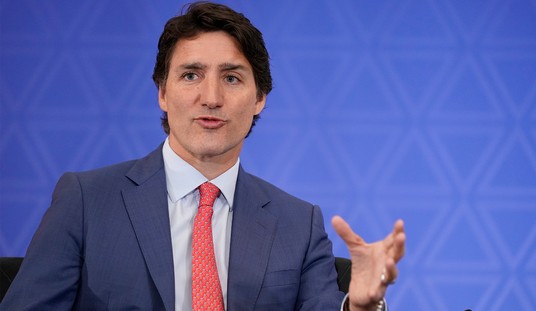Ah, the transformative power of spin.
Did anyone else notice a big shift in messaging yesterday from Senate Democrats?They walked into the Inflation Reduction Act debate insisting that their reconciliation effort focused on voters’ biggest concern and highest priority — the economy.
They walked out after its narrow passage at the end of the vote-a-rama singing a much different tune:
By investing in clean energy, clean transportation, and climate-smart manufacturing, we’ll cut emissions 40 percent by the end of the decade. And we’re going to pay for it all by making billion-dollar corporations finally pay their fair share of taxes.
— Senator Brian Schatz (@SenBrianSchatz) August 7, 2022
I’d like to say a huge thanks and kudos to my staff, especially those on @SenateFinance, who have been working tirelessly to craft this legislation to tackle the climate crisis and lower prescription drug costs. They’re the best in the business and set the bar for public service. https://t.co/KVeY11X7aq
— Ron Wyden (@RonWyden) August 7, 2022
And so on. The Democrats talked a lot about the historic nature of their green spending while barely paying lip service to actual inflation reduction — and for good reason, as we’ll recall in a moment. Chuck Schumer at least emphasized inflation while bragging about his “boldest climate package in US history”:
I’d like to say a huge thanks and kudos to my staff, especially those on @SenateFinance, who have been working tirelessly to craft this legislation to tackle the climate crisis and lower prescription drug costs. They’re the best in the business and set the bar for public service. https://t.co/KVeY11X7aq
— Ron Wyden (@RonWyden) August 7, 2022
Senate Democrats may spin this as an inflation-reduction act, but there’s just one problem: it doesn’t reduce inflation. According to a Penn Wharton Budget Model analysis of the kind that used to matter on Capitol Hill, the extra spending will actually increase inflation through 2023. The impact on inflation after that will be minimal. Deficit reduction won’t take place until the seventh year, and even that assumes that Congress won’t keep increasing the amount of money it spends.
As it just did yesterday, in the Inflation Reduction Act that doesn’t reduce inflation. That comes only sixteen months after spending $1.9 trillion in the off-budget American Rescue Plan that didn’t rescue Americans. Instead, that bill set off the massive inflationary wave that Democrats promised to address in this bill, but which they used as a smoke screen to pass a skinny version of the same progressive agenda that’s bounced around Washington for the last couple of decades.
This bill did have one exception, one novelty — a massive expansion of the IRS. That has nothing to do with fighting inflation either, and it will cost $80 billion over the next ten years to add 87,000 employees to the IRS. As of 2019, the IRS employed just under 75,000 employees, which means this bill doubled the size of the IRS.
The intent is to ramp up audits to catch tax cheats, which Democrats insisted would be aimed at the wealthy and at corporations. Senate Republicans cleverly offered an amendment to explicitly restrict their activities to companies and individuals that earned more than $400,000, Joe Biden’s promised level of tax safety for working Americans. Rather than adopt that and enforce that pledge, every Senate Democrat voted to defeat the amendment.
What does that say about their intent? And unless the GOP is suddenly afflicted with a case of complete incompetence, how will taxpayers receive that news when Republican TV and radio ads blare it out constantly starting after Labor Day?
That’s not the only point Democrats should fear after Labor Day either. The news of this bill’s passage will likely keep the damage down from this week’s reports on inflation in the Consumer Price Index and the Producer Price Index. What happens, however, when the bill passes the House — and inflation doesn’t get tamed? Punchbowl points out the risks:
Nothing in any of these bills will reduce inflation or boost the economy before Election Day. The latest inflation data for July will be released early Wednesday morning, days before the House votes on the reconciliation package. If it’s as bad as June’s numbers, that suddenly may turn into a tougher vote.
Republicans also have hammered vulnerable Senate Democrats for raising taxes as a recession looms. Industry groups including PhRMA, the Business Roundtable and the National Association of Manufacturers are slamming the bill, with drug makers pumping millions of dollars into ads designed to derail the legislation.
During the marathon vote-a-rama – the fourth this Congress – GOP senators offered amendments on a range of tough issues for vulnerable Democrats, including securing the U.S.-Mexico border, boosting police funding and slashing the billions of dollars in new IRS money. All were defeated by Democrats.
Nothing in this bill will have any downward impact on inflation at all for at least a year. And the big problem is that the last news on that will come in two waves between the passage of this progressive hobby-horse bill and the midterm vote. We will get inflation data at the beginning of both September and October, with the latter probably the most impactful on voter assessment of this bill. If voters don’t see a change in inflation, and don’t see a change in the supply-chain disruptions, they will see through the bill as nothing more than Democrats desperately trying to cash out before getting the boot in November.
That may make progressives happy — well, at least less miserable than usual — but it will leave voter priorities untouched. Marco Rubio pointed that out in the debate:
Here’s Sen. Marco Rubio (R-Fla.), who’s running for reelection in November:
“There isn’t a single thing in this bill that helps working people lower the prices of groceries, or the price of gasoline, or the price of housing, or the price of clothing. There isn’t a single thing in this bill that’s gonna keep criminals in jail. There isn’t a single thing in this bill that’s going to secure our border. Those happen to be things that working people in this country care about.”
And Josh Kraushaar puts it more succinctly:
About to ask the "When everybody says you are drunk, you'd better sit down" question of @JoshKraushaar: Everyone outside of Beltway thinks it is political suicide the double the size of IRS and add 87,000 agents. Are Senate Democrats drunk?
— Hugh Hewitt (@hughhewitt) August 8, 2022
Nope, but they are thirsty for tax dollars. House Democrats are as well. There may be some remote possibility that Nancy Pelosi gets more than four defectors on the IRS bill — excuse me, IRA bill — but those will be very long odds indeed. Even the CPI and PPI numbers out this week won’t discourage them, which means they’ll own the next two sets of CPI and PPI numbers even more.







